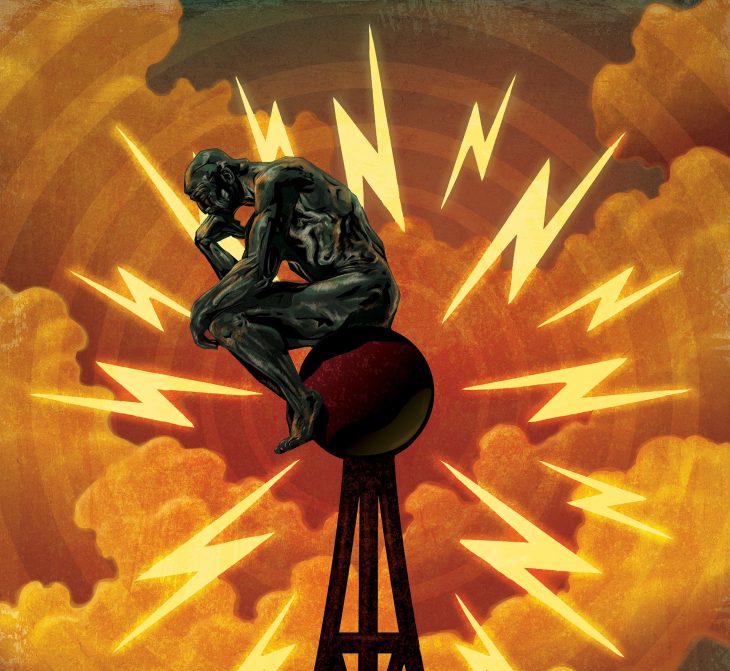
Siphoning hundreds of millions from them for Cancon will give streamers leverage over government and regulators
By Len St-Aubin
THE GOVERNMENT SAYS Bill C-10 is part of a plan to rein in web giants by making them pay their “fair share” when it comes to Canadian culture. That’s their story, and Heritage Minister Steven Guilbeault is sticking to it.
But you have to wonder, at what cost? Extracting up to 30% of revenues generated in Canada from the likes of YouTube (Google), Apple, Facebook, Amazon, Netflix, Disney, Spotify et al, and subjecting them to outdated, unnecessarily intrusive CRTC regulation, what’s the “quid-pro-quo”?
There’s only one of value: leverage. Whether or not it’s “on offer”, you can expect it will be assumed — because other public policy issues will engage the web giants too.
Quebec media railed (still do) about a non-existent exemption from collecting sales tax in the 2017 Netflix deal (never possible under the Investment Canada Act in the first place). By contrast, Bill C-10 will create a regulatory bargain that, albeit subtle, carries real and foreseeable risk for public policy influence — and no one is paying attention.
Bill C-10 will do this by making our cultural sector, the CRTC, and the government, progressively more dependent on those big, global, U.S. companies to finance Canadian online audio and video content. Minister Guilbeault calls that “ensuring our cultural sovereignty.” Really?
A previous article demonstrated how Bill C-10 could effectively outsource the best, most culturally-sensitive, subsidized Cancon to foreign streamers — and Canadian audiences would follow. Forced to finance Cancon, global platforms and streamers could easily outbid our broadcasters for the best Canadian stories, creators, casts, crews, and facilities. Working with independent producers, they would benefit indirectly from rich Cancon tax credits, Canada Media Fund financing, and other subsidies too. Yes, taxpayers will help finance foreign streamers’ Cancon obligations.
Back in the 20th century, when radio and TV broadcasting served domestic markets and the government was able to control market entry, there was a logic to delegating Cancon responsibility to Canadian broadcasters. After all, they made use of public airwaves and they were licensed to serve Canadians. That logic breaks down when responsibility for Cancon gets outsourced to foreign online platforms and streamers which don’t need to serve Canada at all.
“As foreign platforms and streamers assume more and more responsibility for Canadian culture — and they most certainly will — so too will their influence with the regulator, the bureaucracy and the government.”
Relationships of dependence have consequences. Bill C-10 will co-opt web giants with government, the CRTC, and the cultural community. That means leverage.
In return for compliance, global platforms and streamers will have leverage to negotiate Cancon obligations and regulatory burden. Working in their favour are popularity, millions of satisfied Canadian subscribers and users, very significant investment in some of Canada’s most innovative high-tech and audiovisual production sectors (meaning jobs and economic impact), Cancon export opportunities, and, bottom line, the ability to block access to their sites.
That leverage won’t disappear once they are under CRTC oversight. Far from it.
As foreign platforms and streamers assume more and more responsibility for Canadian culture — and they most certainly will — so too will their influence with the regulator, the bureaucracy and the government.
When it comes to reining-in web giants, by far the most important emerging public policy issues are the potential for anti-competitive, anti-innovation and anti-consumer behaviour. In both the U.S. and Europe, competition authorities are taking action against some of those companies — particularly multi-sided platforms like Google, Apple, Amazon and Facebook which interact directly with both consumers and suppliers, giving them opportunities and incentives for self-dealing. Now that actually looks like “reining-in”. On that front, Canada is so far missing in action.
Competition Commissioner Matthew Boswell says he has neither the tools nor the resources to meaningfully take on big tech. As for Google, Apple, Facebook and Amazon, it’s certainly not in their interests for the Competition Bureau to obtain those tools and resources, or even to use the limited powers it already has, against them.
C-10 will give web giants new leverage, as grand patrons and protectors of Canadian content and cultural sovereignty, backed up by their millions of subscribers, major investments, and ability to block.
So, we need to ask why, in the grand scheme of public policy priorities, has the government given precedence to Bill C-10 and its implicit dependency on foreign platforms and streamers, instead of strengthening the Competition Act – something C-10 can only make more difficult to do.
The government’s latest amendment, removing from C-10 the exemption for user uploaded audio and video content, goes further down the path of co-opting web giants. Despite the government’s denials, the removal of clause 4.1 will make social media like YouTube, Facebook, Instagram, etc., responsible, as broadcasters for user-uploaded content. That means that the CRTC will have the authority to make social media companies moderate or censor that content, including political content.
The Minister says that’s not the “intent” and the bill is about “professionally produced” content (whatever that is). With respect, Bill C-10 says otherwise.
As for intentions… if what the government really wants is to level the playing field for Canadian broadcasters and extract some money for Cancon from online platforms and streamers, there are alternatives. We could follow Australia’s lead by beginning to deregulate broadcasting and impose a straightforward Cancon levy (5% of Canadian revenues) on the major streamers.
That would avoid all of Bill C-10’s complications and unintended consequences —including reinforcing web giants’ potential leverage over Canadian public policy.
Consultant Len St-Aubin concluded his most recent client commitment as of 31 Dec. 2020. The views expressed in this opinion are his alone. Formerly he was Director General, Telecommunications Policy, at Industry Canada, he was also a member of the policy teams that developed both the 1991 Broadcasting Act and the 1993 Telecommunications Act.


